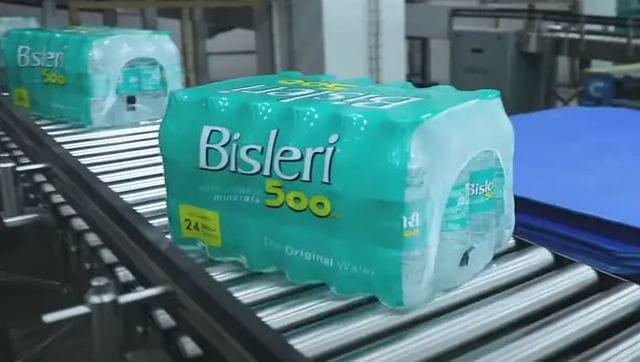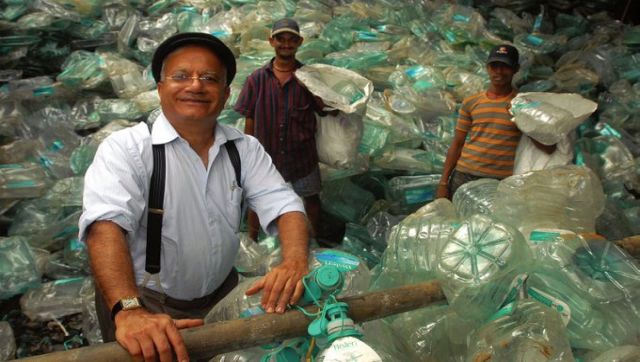‘Bhaiya, ek Bisleri dena’ — is something we hear quite often in India. The packaged drinking water company run by Ramesh Chauhan is one of the few companies that has done the near impossible of synonymising itself with a product. Now, after over 50 years since he first acquired the brand — Chauhan bought Bisleri back in 1969 for Rs 4 lakh — the 82-year-old businessman is in the process of divesting Bisleri International to Tata Consumer Products Ltd (TCPL) for an estimated Rs 6,000-7,000 crore. As the deal materialises, here’s a better look as to the company’s long history in the country and also why the octogenarian is selling it. Reasons to sell The news of Ramesh Chauhan, 82, selling Bisleri to Tatas came as a shock to many. In an interview to Economic Times, he revealed that his poor health and the lack of a successor were the reasons for him selling his company. The businessman said that his daughter, Jayanti, is not interested in handling the business. Jayanti, or JRS as she is fondly called, joined her father’s empire at the age of 24 after she studied product development and pursued fashion styling at the iStituto Marangoni Milano. Once at Bisleri, JRC took charge of the Delhi office and took up the challenge of renovating the factory and bringing about automation of various processes. She also restructured departments such as HR, sales and marketing, so as to build stronger teams. In 2011, she took over the Mumbai office and today serves as vice chairperson of Bisleri. However, despite all her work at the packaged drinking water company, she has no interest of taking over — sending shock waves across the business world. Enter Tata Bisleri’s chairman Chauhan said that though the decision to sell was a ‘painful’ one, he opted for Tata Consumer Products Ltd as they would “nurture and take care of it even better”. He added that as he has no intention of running the company, he would not keep a minority stake, but would rather invest in environmental and charitable causes. As per a report in the Economic Times, Chauhan made up his mind after meeting Tata Sons chairman N Chandrasekaran and Tata Consumer CEO Sunil D’Souza a few months back. “I like them. They are good guys,” he was quoted as saying as per the report. Many analysts have stated that Tata’s deal with Chauhan is a steal for the former company, but has also expressed some concerns. Nuvama Wealth Management, formerly known as Edelweiss Securities believes that the acquisition can elevate the company’s business as it has the expertise and capabilities as well as distribution heft. However, according to a Moneycontrol report, the acquisition could saddle Tata Consumer Products with sizeable debt and place the company in a market segment marked by thin margins, intense competition and minimal pricing power. [caption id=“attachment_11708831” align=“alignnone” width=“640”] After acquiring Bisleri in 1969, Ramesh Chauhan introduced the 500 ml bottle in 1995, which became a huge success. Image Courtesy: @bislerizone/Instagram[/caption] Journey of Bisleri Bisleri has a long, long history with India. However, the desi brand of water does not have Indian origins. The roots of this packaged drinking water company can be traced back to Italy where it is believed to have originated from a spring called Angelica in a town called Nocera Umbra. According to history, the brand was first conceptualised by entrepreneur Felice Bisleri. When it was first developed, Bisleri was an alcohol remedy drink containing cinchona, herbs and iron salts. After the death of Felice in 1921, his family doctor, Dr Rossi, took over the company. In 1965, Bisleri made its way to India when Dr Rossi and his friend Khushroo Suntook set up the first Bisleri water plant in Mumbai’s Thane. The brand entered the Indian market as Bisleri mineral water and Bisleri soda. It was only available to the rich in five-star hotels and expensive restaurants. Four years later, in 1969, the brand was acquired by the Parle brothers, Ramesh Chauhan and Prakash Chauhan, for Rs 4 lakh and launched in India in glass bottles and in two variants, Bubbly and Still. Ramesh Chauhan has revealed that selling packaged drinking water was never in his business plans. “We had brands such as Gold Spot but no soda; in the late ’60s and early ’70s there was good demand for soda from five-star hotels. Bisleri Soda was popular, which is why I bought out the company. But we did not even look at the water business then,” Ramesh Chauhan had told Business Today in 2008. It was only in 1993 when Chauhan sold his soft-drinks portfolio to Coca-Cola that he eyed the drinking water market. Chauhan then decided that to be successful the brand needed to reach the masses and in 1995, he introduced a small 500 ml bottle priced at just Rs 5. The idea became a success and Bisleri was successful in reaching the masses. It reduced the price and solved the issue of portability. The company achieved 400 per cent growth and captured 40 per of the packaged water bottle market share. Eleven years later, in a rebranding exercise, Bisleri became green, which helped it to stand out from its competitors. [caption id=“attachment_11708821” align=“alignnone” width=“640”]
 Bisleri today enjoys a market share of 32-35 per cent in the packaged drinking water segment. Image Courtesy: @Bisleri/Twitter[/caption] Today, the company enjoys a market share of 32-35 per cent in the packaged drinking water segment and has also spurred lot of counterfeits of the brand. Rajni Daswani, director of digital marketing at So Cheers, a Mumbai-based marketing agency, has been quoted as telling The Print, the brand’s openness to change and swiftness in keeping up with trends has worked in its favour. “Bisleri made bold changes to its packaging in a bid to tackle competitors who were encroaching on their market share by luring consumers with similar packaging. The brand entirely redid their look and feel, from blue to green, from the conical bottle shape to a more round one. Paired with an interesting ‘Har Paani Ki Bottle Bisleri Nahin’ campaign, it delivered the desired results and how! And time and again, the brand has strategically played upon its marketing and packaging tactics.” With inputs from agencies Read all the Latest News , Trending News , Cricket News , Bollywood News , India News and Entertainment News here. Follow us on
Facebook,
Twitter and
Instagram.
Bisleri today enjoys a market share of 32-35 per cent in the packaged drinking water segment. Image Courtesy: @Bisleri/Twitter[/caption] Today, the company enjoys a market share of 32-35 per cent in the packaged drinking water segment and has also spurred lot of counterfeits of the brand. Rajni Daswani, director of digital marketing at So Cheers, a Mumbai-based marketing agency, has been quoted as telling The Print, the brand’s openness to change and swiftness in keeping up with trends has worked in its favour. “Bisleri made bold changes to its packaging in a bid to tackle competitors who were encroaching on their market share by luring consumers with similar packaging. The brand entirely redid their look and feel, from blue to green, from the conical bottle shape to a more round one. Paired with an interesting ‘Har Paani Ki Bottle Bisleri Nahin’ campaign, it delivered the desired results and how! And time and again, the brand has strategically played upon its marketing and packaging tactics.” With inputs from agencies Read all the Latest News , Trending News , Cricket News , Bollywood News , India News and Entertainment News here. Follow us on
Facebook,
Twitter and
Instagram.
After owning Bisleri for more than 50 years, Ramesh Chauhan is in talks to sell the packaged water company to Tata Consumer Products Ltd for an estimated Rs 6,000-7,000 crore. The 82-year-old said that his poor health and daughter Jayanti’s decision to not take over was the reason for the sale
Advertisement
End of Article


)

)
)
)
)
)
)
)
)



